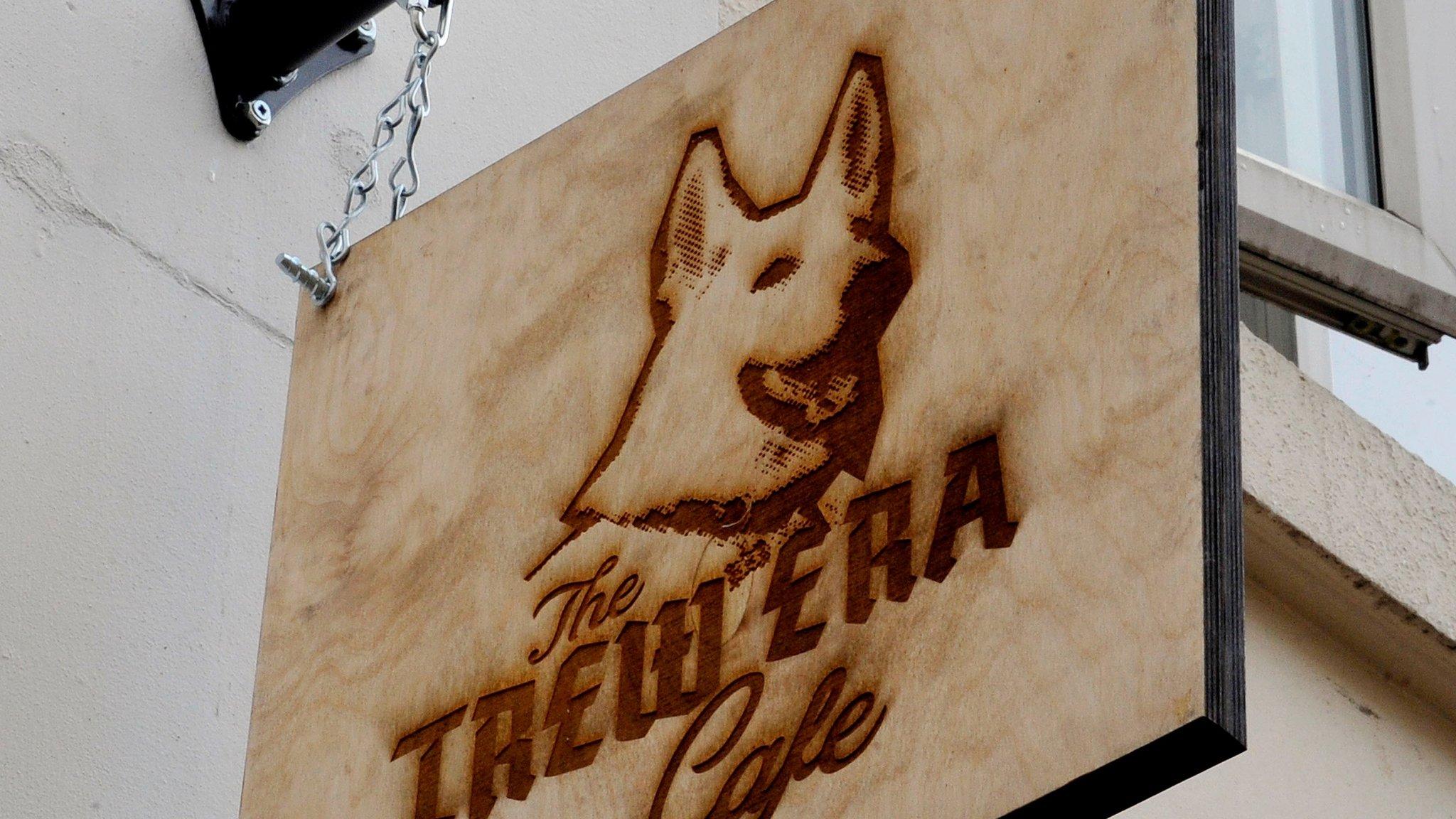Russell Brand: Society is collapsing
- Published
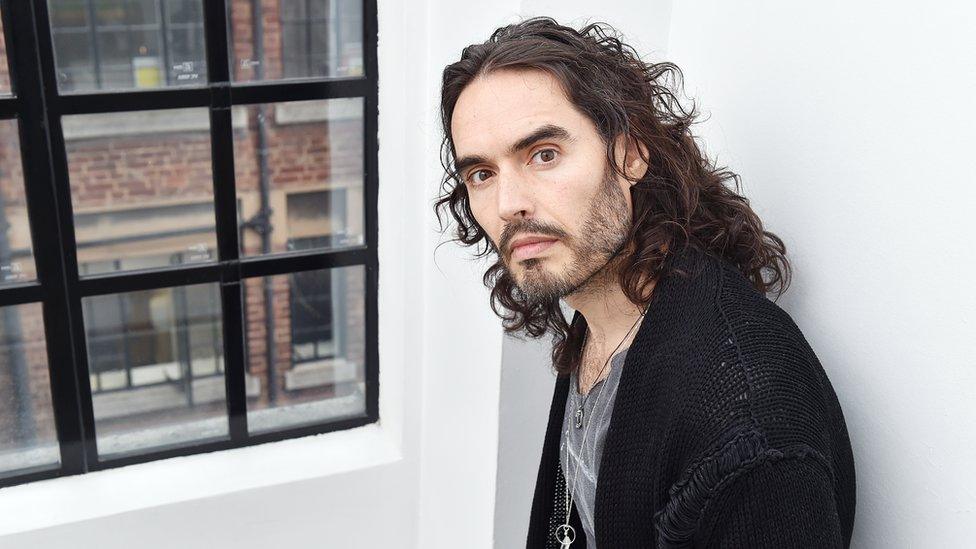
Brand's latest book deals with his own addictions to drugs, alcohol, sex and fame
Addiction and mental health may not be the kinds of issues you'd normally expect to be addressed at a stand-up comedy gig.
But Russell Brand has never been your conventional comedian - and it's precisely these subjects that he's tackling in his new book and at one of his upcoming London shows.
"Society is collapsing," the comedian tells the BBC, "and people are starting to recognise that the reason they feel like they're mentally ill is that they're living in a system that's not designed to suit the human spirit.
"People are realising 'Hold on a minute, is it natural to work 12 hours a day? Is it natural that I live in an environment that is designed for human beings from one perspective but not from a holistic perspective?' Breathing dirty air, eating dirty food, thinking dirty thoughts. So really what this is, is a time of transition.
"Yes, the conversation is changing because the communication is becoming so much more expedient, but what's really changing is people are starting to notice that the system is not working for them."
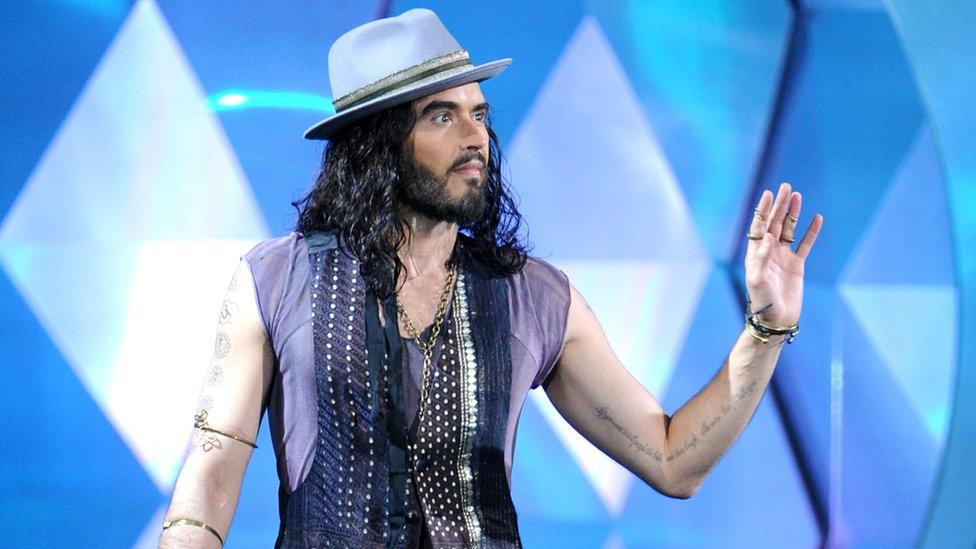
The comedian says he prefers theatres to large arenas when it comes to performing comedy
The 42-year-old's latest book - Recovery: Freedom From Our Addictions - is released this month, and sees him discussing his own addictions, namely drugs, alcohol, sex and fame.
But, he says, the book isn't just for people who have had chemical addictions, and argues that pretty much all of us have some kind of vice.
"Everyone's living their lives on addictions really," he says. "Everyone is living their life thinking they've got the answer to their own little problem. If there's something they get, something they do, they're going to feel a little bit better.
"Addicts are just a more pronounced version, and end up usually with a drug issue, but look at what people can do to themselves with food.
"People can destroy their lives with food, and so addiction really, we're all on the spectrum, we're all on the scale, it just depends how severe we are, and I think that unless you're happy in your life, there's room for a program.
He continues: "Unless you're like 'I'm really happy with my job, my diet, my relationship, my body', if that's how you feel, that's fine. You deserve to feel like that, people should feel like that.
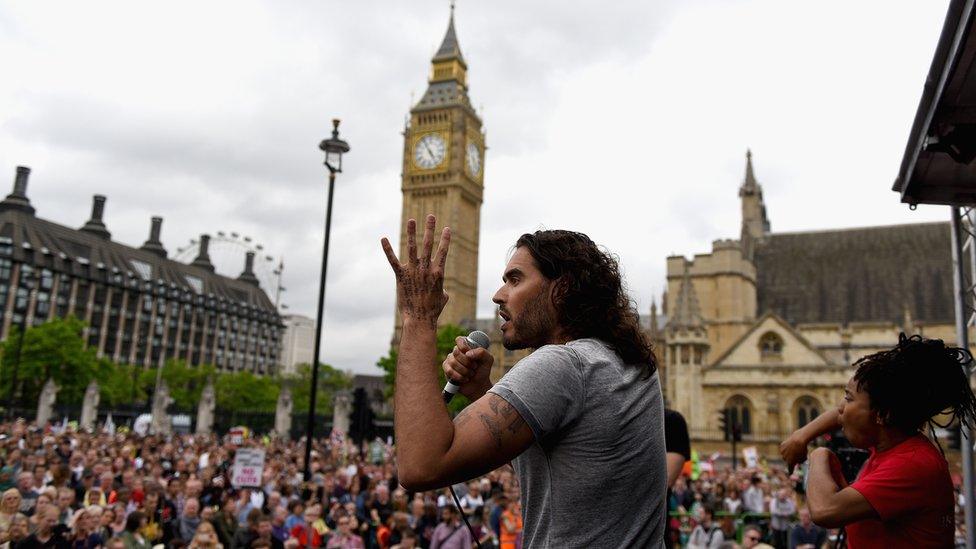
Brand has turned to activism more recently and attended an austerity march in London in 2015
"I'm not talking about stupid simple pleasures like eating an ice lolly, that's only very temporary, we're looking at peak and contentedness which we can find our way to, if we're willing to change the way we think."
Brand clearly isn't going to be short of material when he discusses the topic at a special gig at the Hammersmith Apollo on 1 November.
In addition to his usual stand-up show, he's going to turn up early to do some readings from Recovery.
"It's the only time I'm ever going to do it," he explains. "So if people want to come at 6.30, I'll read from the book, and then do the show, Rebirth."
It's interesting that Brand is playing somewhat smaller venues than the arenas we've seen other A-list comics perform at in recent years.
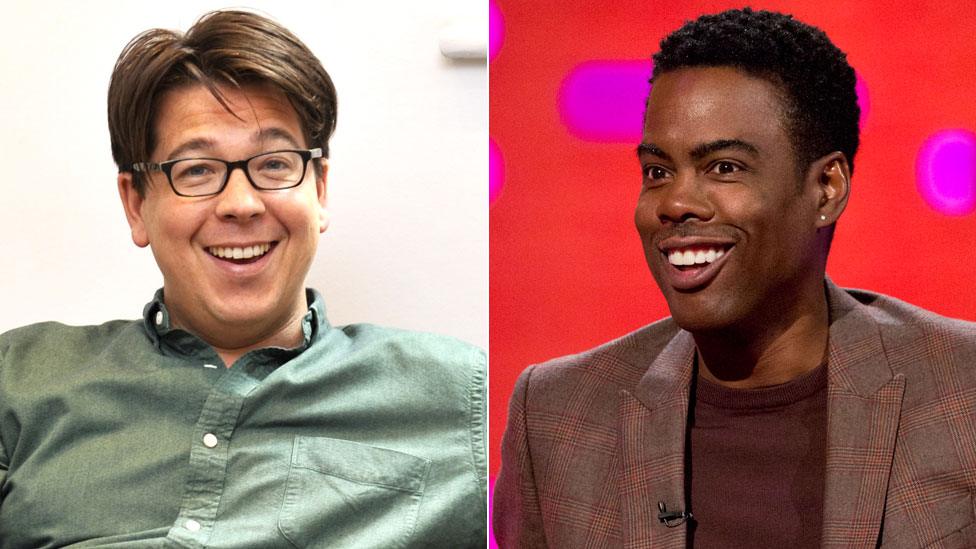
Michael McIntyre and Chris Rock have both toured arenas in recent years
The recent generation of "rock star comedians" like Michael McIntyre, Chris Rock and Peter Kay are more likely to sell out the O2 than play an impromptu gig at the Comedy Store, but Brand says he prefers the intimacy of slightly smaller venues.
"People that have played both arenas and theatres, most people prefer theatres, and I'd say the same," he says.
"It's a great privilege to perform in front of 20,000 people at once like at the O2, it's lovely, but there's all sorts of reasons for not doing it... but I love doing stand-up comedy, so I'm happy to do two nights in Brixton and two nights in Hammersmith rather than one night at the O2, and it is a better experience for the audience and for the performer."
Speaking about his own live dates, Russell adds: "The stand-up is full of audience interaction. The thing that excites me most is what people create when they come together in groups."
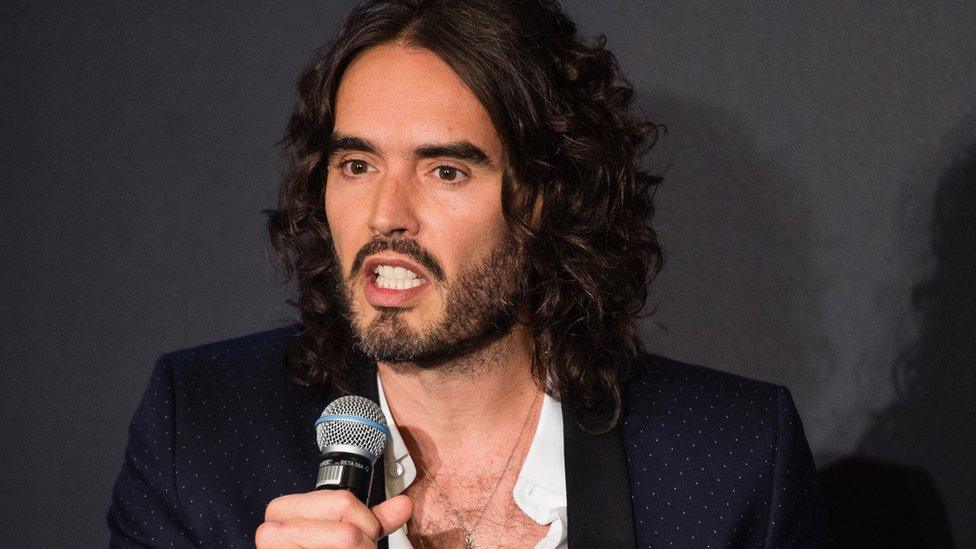
Brand has become increasingly vocal as an activist and campaigner in recent years
Despite his recent activism, which has included charity work, austerity protests and endorsing Jeremy Corbyn, external, it's unlikely that Russell will be entering the world of politics anytime soon.
"If you think the political process doesn't work, why would you think, I'm going to get involved with it?" he asks.
"If you swap the word 'political process' for 'car', you wouldn't think 'I'm going to get in that car and try and drive it in a different direction. If you think people should be riding horses, start riding a horse.
"So just do what you think is the correct thing to do. If you think your school should be run differently, start running your school differently, and then when you find obstacles to that, confront the obstacles, but never alone, always in groups.
"The thing I've learned from recent conversations from people who are experts, like Prof David Harvey, is to start establishing systems you believe in, and operate within them. So the work I'm doing already is the work that I think should be done.
"So I think if people start communicating honestly and openly, they'll realise, 'Everyone is more similar to me than I imagined.'"

Follow us on Facebook, external, on Twitter @BBCNewsEnts, external, or on Instagram at bbcnewsents, external. If you have a story suggestion email entertainment.news@bbc.co.uk.
- Published29 August 2017
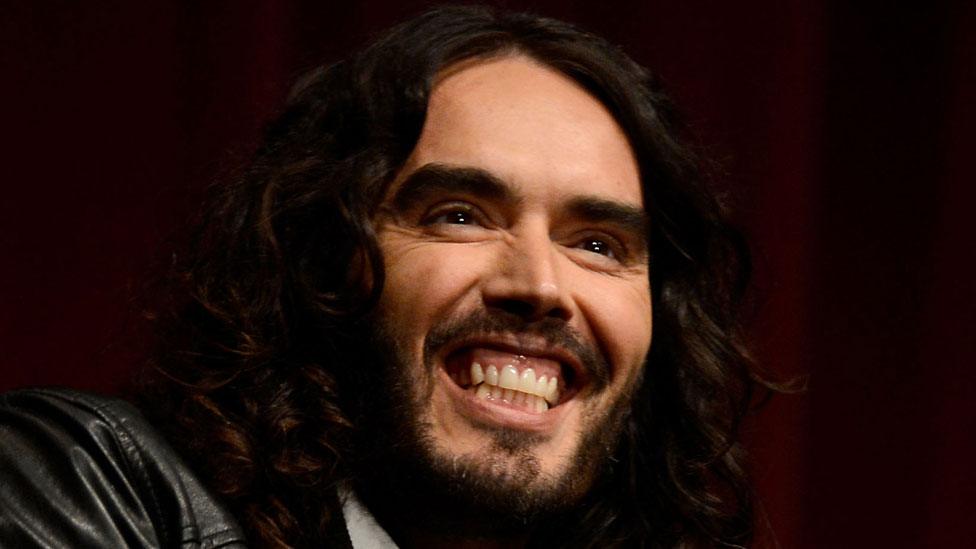
- Published27 August 2017
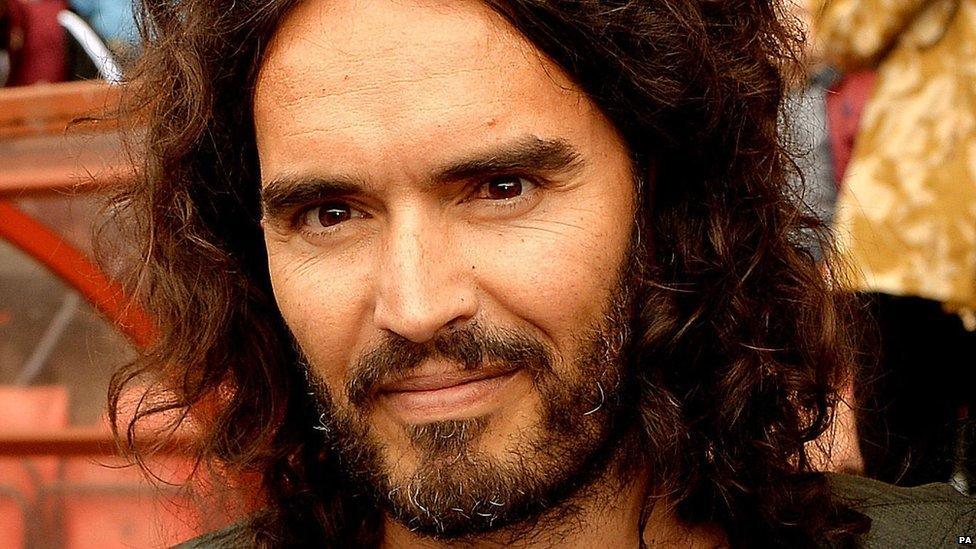
- Published25 September 2016
